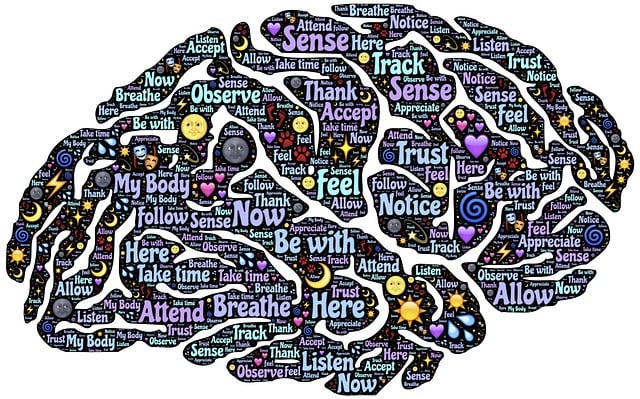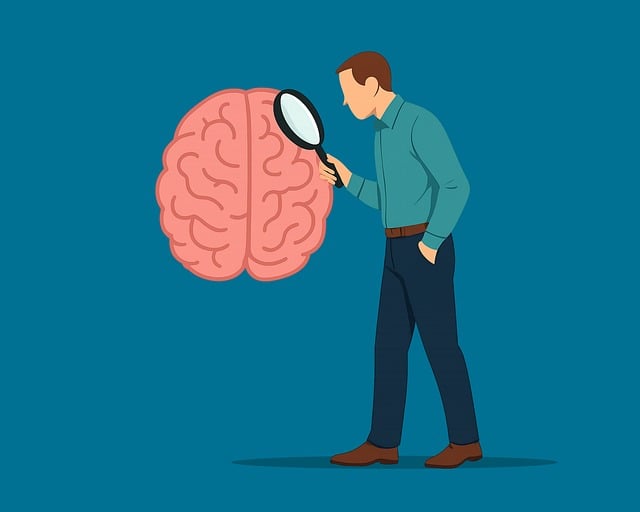Longmont Crisis Counseling Therapy creates innovative, accessible mental wellness self-assessment tools that empower individuals to take control of their emotional well-being. By evaluating stress levels, emotional regulation, and conflict resolution techniques, these assessments enable early intervention for issues like anxiety and depression. Leveraging technology, expert knowledge, and community collaboration, Longmont's tools offer tailored coping strategies, continuous refinement, and digital platforms for personalized support, revolutionizing mental health awareness and care in today's digital era.
Mental wellness self-assessment tools play a crucial role in identifying and addressing individual well-being. This article explores the development of such tools, focusing on the contributions of organizations like Longmont Crisis Counseling Therapy. We delve into essential components for effective assessment, highlighting the integration of technology through digital platforms to enhance accessibility. Through testing, validation, and continuous improvement strategies, we ensure these tools remain adaptive and beneficial. Understanding mental wellness self-assessment tools is vital for fostering holistic well-being in today’s world.
- Understanding Mental Wellness Self-Assessment Tools
- The Role of Longmont Crisis Counseling Therapy in Development
- Identifying Key Components for Effective Assessment
- Integrating Technology: Digital Platforms and Their Benefits
- Testing, Validation, and Continuous Improvement Strategies
Understanding Mental Wellness Self-Assessment Tools

Mental wellness self-assessment tools play a pivotal role in empowering individuals to take charge of their emotional well-being. These tools, often developed by mental health professionals like those at Longmont Crisis Counseling Therapy, are designed to offer a comprehensive and accessible way for people to gauge their mental health status. By assessing various aspects of one’s life, including stress levels, emotional regulation, and conflict resolution techniques, these self-assessments serve as valuable initial indicators for seeking professional help if needed.
They contribute significantly to the broader goal of fostering Mental Health Awareness by encouraging individuals to proactively monitor their psychological state. This proactive approach is essential in addressing mental health concerns early, preventing escalation, and promoting healthy coping strategies. Tools like these can be particularly beneficial for those who may not yet recognize underlying issues, providing them with insights that could lead to positive changes and improved overall well-being.
The Role of Longmont Crisis Counseling Therapy in Development

Longmont Crisis Counseling Therapy plays a pivotal role in the development of mental wellness self-assessment tools. With their expertise in crisis intervention and trauma-informed care, they bring a unique perspective to the creation of resources aimed at enhancing coping skills development. By focusing on evidence-based practices, Longmont Crisis Counseling therapists contribute to the design of tools that are both effective and accessible for individuals seeking support.
These professionals understand the nuances of mental health challenges, including anxiety, depression prevention, and other common issues. Their insights ensure that self-assessment tools not only identify potential problems but also offer tailored strategies for managing them. Through collaboration with researchers and community organizations, Longmont Crisis Counseling Therapy continues to refine these resources, making them relevant and impactful in the ongoing pursuit of better mental wellness.
Identifying Key Components for Effective Assessment

In developing a comprehensive mental wellness self-assessment tool, such as those offered by Longmont Crisis Counseling Therapy, it’s crucial to identify and incorporate key components that accurately gauge an individual’s psychological state. These include assessing symptoms of common mental health conditions, evaluating coping mechanisms, and gauging resilience levels. By incorporating these elements, the assessment can provide a holistic view of one’s mental wellness.
Additionally, incorporating features related to stress management workshops organized by Stress Management Workshops Organization or even integrating content from Mental Wellness Podcast Series Production can enrich the tool. These resources not only offer insights but also practical strategies for improving mental health. Resilience building exercises, for instance, can empower individuals to navigate challenges more effectively, thereby enhancing the overall assessment’s effectiveness and relevance in today’s fast-paced world.
Integrating Technology: Digital Platforms and Their Benefits

In today’s digital age, integrating technology into mental wellness self-assessment tools has opened up a world of possibilities for Longmont Crisis Counseling Therapy and similar services. Online platforms offer accessibility, convenience, and a more personalized approach to mental health support. Apps and websites can provide interactive resources, such as digital mood trackers, virtual meditation spaces, and access to a wide range of coping skills development materials. These tools allow individuals to engage with their mental wellness proactively and at their own pace.
For instance, conflict resolution techniques and compassion cultivation practices can be effectively taught and reinforced through dedicated digital platforms. Interactive exercises, guided meditations, and peer support forums cater to diverse learning styles, ensuring that users can develop effective coping strategies tailored to their unique needs. By leveraging these technologies, mental health professionals in Longmont can extend their reach, offering timely interventions and continuous support beyond traditional therapy sessions.
Testing, Validation, and Continuous Improvement Strategies

The development of a robust self-assessment tool for mental wellness is an iterative process that requires rigorous testing and validation to ensure its effectiveness. At Longmont Crisis Counseling Therapy, we understand the importance of continuous improvement in this domain. Therefore, our approach involves multiple stages: initial pilot testing with a diverse group of users to gather baseline data, followed by expert reviews to refine the tool’s accuracy and usability.
Validation strategies include comparing self-assessment outcomes against established mental health diagnostic criteria and integrating feedback from healthcare professionals. We also emphasize user experience, ensuring the tool is accessible, non-judgmental, and easy to navigate for all users. Furthermore, incorporating burnout prevention strategies for healthcare providers in the design process helps create a balanced assessment that accounts for caregiver well-being, thereby promoting sustainable mental wellness practices, such as Depression Prevention through Mental Wellness Journaling Exercise Guidance.
Mental wellness self-assessment tools have evolved significantly, with Longmont Crisis Counseling Therapy playing a pivotal role in their development. By integrating key components such as accessibility, validity, and reliability, these tools empower individuals to take charge of their mental health. The adoption of digital platforms further enhances their reach and effectiveness, making mental wellness support more accessible than ever. Continuous improvement through testing and validation ensures that these tools remain relevant and beneficial in addressing the dynamic needs of users.














